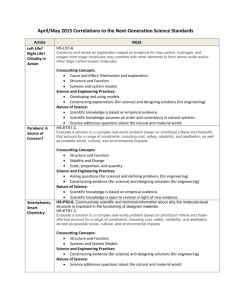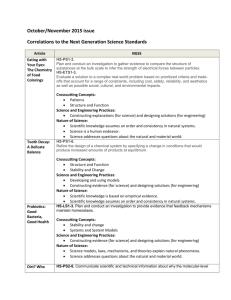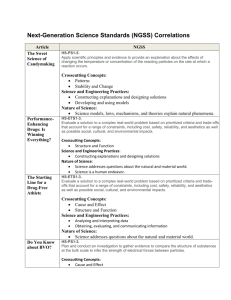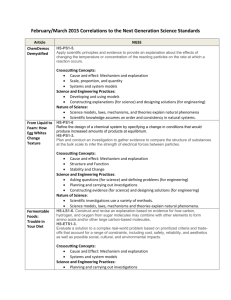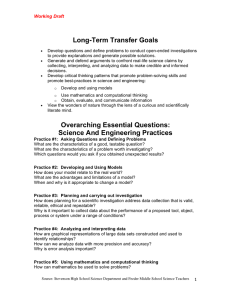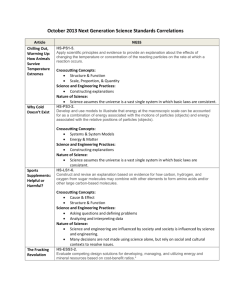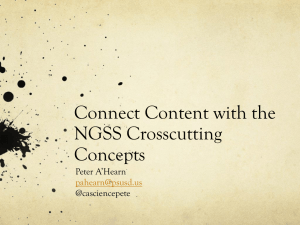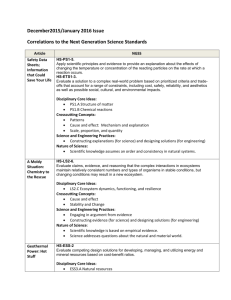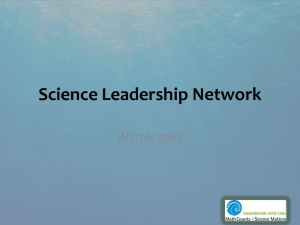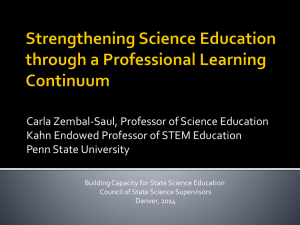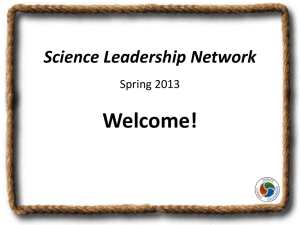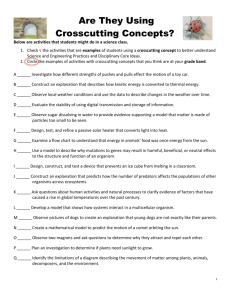February/March 2014 Next Generation Science Standards
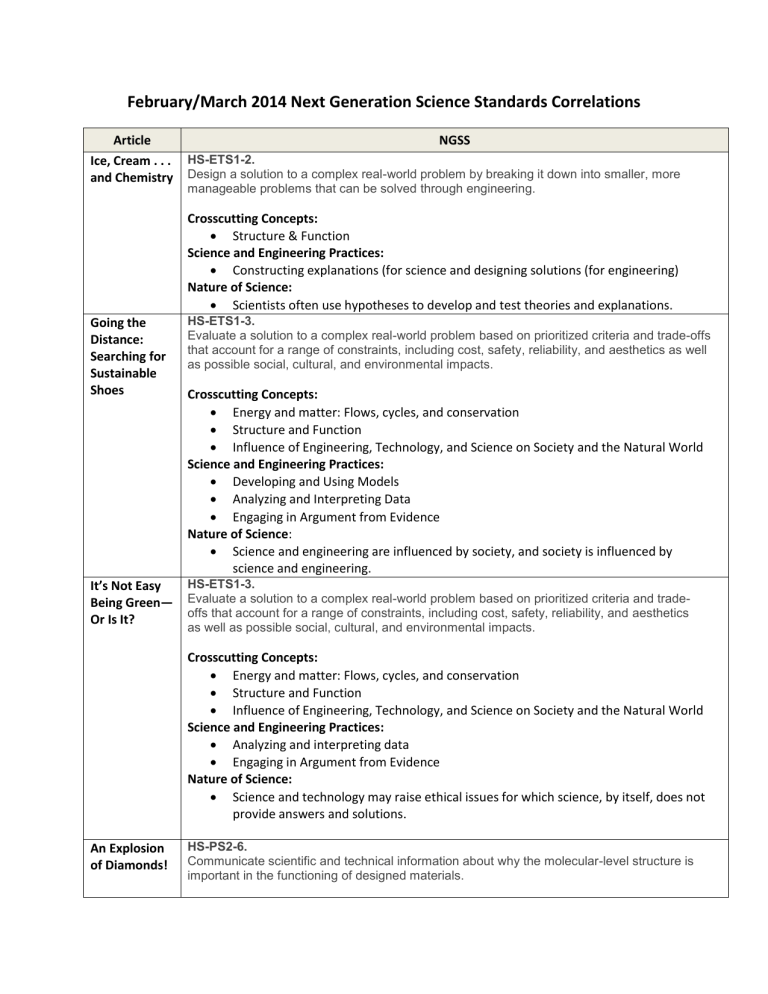
February/March 2014 Next Generation Science Standards Correlations
Article
Ice, Cream . . . and Chemistry
Going the
Distance:
Searching for
Sustainable
Shoes
It’s Not Easy
Being Green—
Or Is It?
An Explosion of Diamonds!
NGSS
HS-ETS1-2.
Design a solution to a complex real-world problem by breaking it down into smaller, more manageable problems that can be solved through engineering.
Crosscutting Concepts:
Structure & Function
Science and Engineering Practices:
Constructing explanations (for science and designing solutions (for engineering)
Nature of Science:
Scientists often use hypotheses to develop and test theories and explanations.
HS-ETS1-3.
Evaluate a solution to a complex real-world problem based on prioritized criteria and trade-offs that account for a range of constraints, including cost, safety, reliability, and aesthetics as well as possible social, cultural, and environmental impacts.
Crosscutting Concepts:
Energy and matter: Flows, cycles, and conservation
Structure and Function
Influence of Engineering, Technology, and Science on Society and the Natural World
Science and Engineering Practices:
Developing and Using Models
Analyzing and Interpreting Data
Engaging in Argument from Evidence
Nature of Science:
Science and engineering are influenced by society, and society is influenced by science and engineering.
HS-ETS1-3.
Evaluate a solution to a complex real-world problem based on prioritized criteria and tradeoffs that account for a range of constraints, including cost, safety, reliability, and aesthetics as well as possible social, cultural, and environmental impacts.
Crosscutting Concepts:
Energy and matter: Flows, cycles, and conservation
Structure and Function
Influence of Engineering, Technology, and Science on Society and the Natural World
Science and Engineering Practices:
Analyzing and interpreting data
Engaging in Argument from Evidence
Nature of Science:
Science and technology may raise ethical issues for which science, by itself, does not provide answers and solutions.
HS-PS2-6.
Communicate scientific and technical information about why the molecular-level structure is important in the functioning of designed materials.
From Waste to Energy . . .
Thanks to
Methane
Crosscutting Concepts:
Patterns
Systems and System Models
Structure and Function
Science and Engineering Practices:
Asking questions and defining problems
Analyzing and interpreting data
Nature of Science:
Many decisions are not made using science alone, but rely on social and cultural contexts to resolve issues.
HS-ETS1-1.
Analyze a major global challenge to specify qualitative and quantitative criteria and constraints for solutions that account for societal needs and wants.
Crosscutting Concept:
Systems and System Models
Energy and matter: Flows, cycles, and conservation
Science and Engineering Practices:
Developing and musing models
Nature of Science:
Individuals and teams from many nations and cultures have contributed to science and to advances in engineering.
